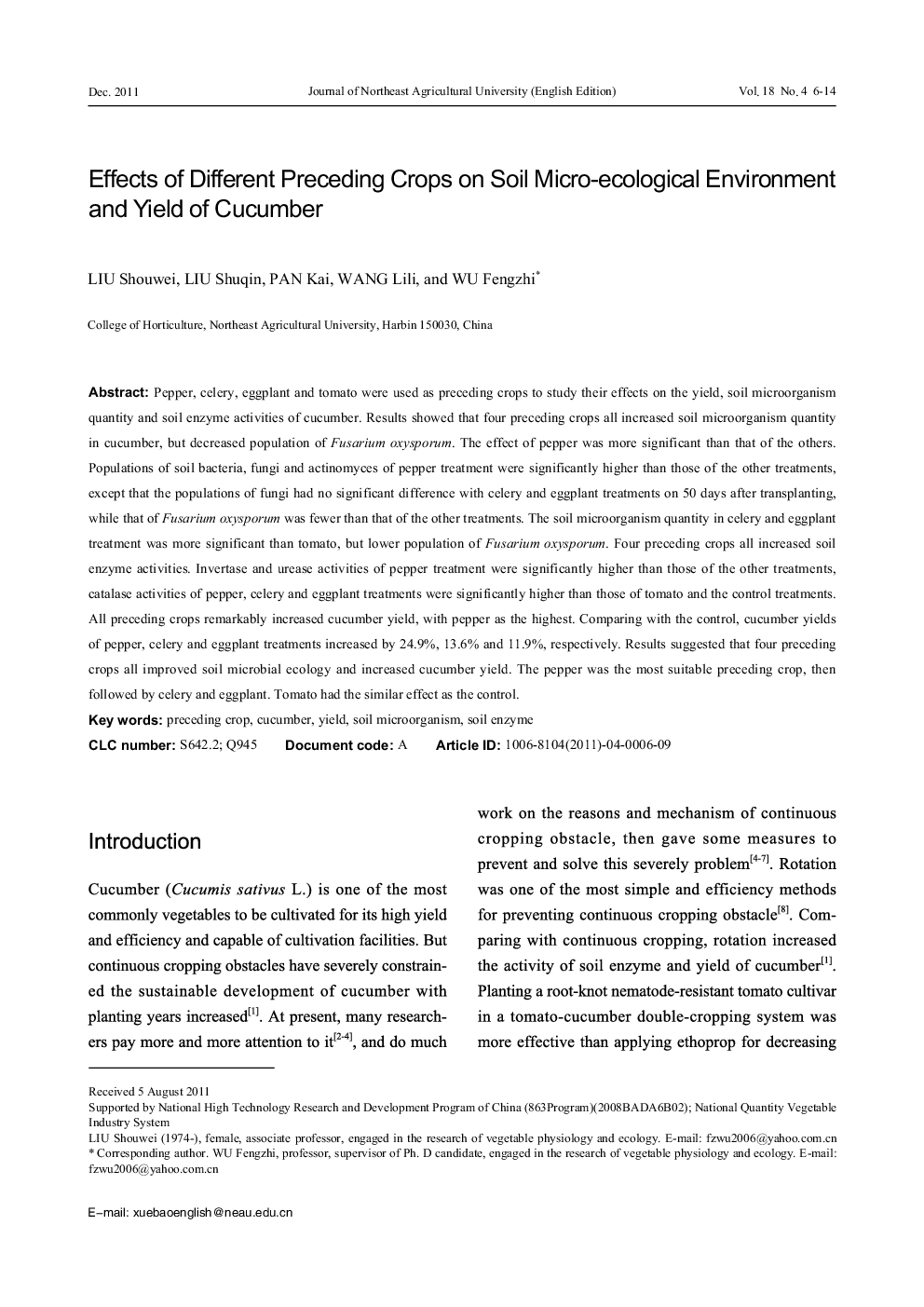| Article ID | Journal | Published Year | Pages | File Type |
|---|---|---|---|---|
| 4495539 | Journal of Northeast Agricultural University (English Edition) | 2011 | 9 Pages |
Pepper, celery, eggplant and tomato were used as preceding crops to study their effects on the yield, soil microorganism quantity and soil enzyme activities of cucumber. Results showed that four preceding crops all increased soil microorganism quantity in cucumber, but decreased population of Fusarium oxysporum. The effect of pepper was more significant than that of the others. Populations of soil bacteria, fungi and actinomyces of pepper treatment were significantly higher than those of the other treatments, except that the populations of fungi had no significant difference with celery and eggplant treatments on 50 days after transplanting, while that of Fusarium oxysporum was fewer than that of the other treatments. The soil microorganism quantity in celery and eggplant treatment was more significant than tomato, but lower population of Fusarium oxysporum. Four preceding crops all increased soil enzyme activities. Invertase and urease activities of pepper treatment were significantly higher than those of the other treatments, catalase activities of pepper, celery and eggplant treatments were significantly higher than those of tomato and the control treatments. All preceding crops remarkably increased cucumber yield, with pepper as the highest. Comparing with the control, cucumber yields of pepper, celery and eggplant treatments increased by 24.9%, 13.6% and 11.9%, respectively. Results suggested that four preceding crops all improved soil microbial ecology and increased cucumber yield. The pepper was the most suitable preceding crop, then followed by celery and eggplant. Tomato had the similar effect as the control.
